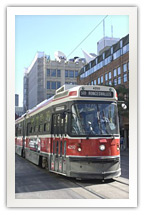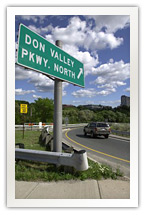 On The Record
On The Record
![]() “As a growing community in one of Canada's fastest growing regions, I know the importance of supporting the One Cent Now initiative. We need a
national solution like One Cent Now to ease resident's municipal tax burden and ensure that towns like Aurora are sustainable.”
“As a growing community in one of Canada's fastest growing regions, I know the importance of supporting the One Cent Now initiative. We need a
national solution like One Cent Now to ease resident's municipal tax burden and ensure that towns like Aurora are sustainable.”
Phyllis M. Morris, Mayor of Aurora
![]() “Municipalities need a reliable and permanent source of funding to grow in a sustainable and healthy way. Ajax - like all Canadian cities - is experiencing rapid growth, but growth does not pay for itself. To remain strong, municipalities need a source of revenue other than property taxes to build the infrastructure on which we all rely such as transit.”
“Municipalities need a reliable and permanent source of funding to grow in a sustainable and healthy way. Ajax - like all Canadian cities - is experiencing rapid growth, but growth does not pay for itself. To remain strong, municipalities need a source of revenue other than property taxes to build the infrastructure on which we all rely such as transit.”
Mayor Steve Parish, Town of Ajax
![]() “With the demands on municipalities ever increasing, we can no longer just rely on property taxes to maintain a high quality of service for our citizens. A one-cent share of the GST would provide much-needed revenue to help the City of Victoria deal with the demands on our taxpayers.”
“With the demands on municipalities ever increasing, we can no longer just rely on property taxes to maintain a high quality of service for our citizens. A one-cent share of the GST would provide much-needed revenue to help the City of Victoria deal with the demands on our taxpayers.”
Mayor Alan Lowe, City of Victoria
![]() “Both Provincial and Federal Governments need to recognize that municipalities require sustainable funding to provide essential infrastructure.
“Both Provincial and Federal Governments need to recognize that municipalities require sustainable funding to provide essential infrastructure.
Mayor Frank Scarpitti, Town of Markham
![]() “I fully support Mayor Miller in the One-Cent NOW! initiative. This is the answer to assist municipalities with their budget constraints towards maintaining infrastructure and future infrastructure.”
“I fully support Mayor Miller in the One-Cent NOW! initiative. This is the answer to assist municipalities with their budget constraints towards maintaining infrastructure and future infrastructure.”
Mayor Margaret Black, Township of King
![]() “Adequate funding for cities is critical to Canada's future growth. One cent of the GST will ensure there exists stable funding to meet the infrastructure and environmental challenges that all cities must face. Hamilton is no different than any other city in Canada in this regard and we will work together to see that this important base funding is provided to Canada's cities.”
“Adequate funding for cities is critical to Canada's future growth. One cent of the GST will ensure there exists stable funding to meet the infrastructure and environmental challenges that all cities must face. Hamilton is no different than any other city in Canada in this regard and we will work together to see that this important base funding is provided to Canada's cities.”
Mayor Fred Eisenberger, City of Hamilton
![]() “We have clearly demonstrated that cities should have access to new and
steady sources of revenue in order to develop and remain competitive on an
international level. In this context, the initiative that my colleague,
David Miller, has taken represents a long term option that brings us one
step closer to our willingness to maintain and improve services to our
citizens while respecting each level of governments responsibilities.”
“We have clearly demonstrated that cities should have access to new and
steady sources of revenue in order to develop and remain competitive on an
international level. In this context, the initiative that my colleague,
David Miller, has taken represents a long term option that brings us one
step closer to our willingness to maintain and improve services to our
citizens while respecting each level of governments responsibilities.”
Mayor Gérald Tremblay, City of Montreal
![]() “Thanks for sticking up for Toronto in particular and urban centres in
general. Whether the issue is chronic underfunding of cities or
environmental neglect, it seems that the best way to light a fire
under unresponsive federal governments is to make sparks at the local
level. Keep up the great work.”
“Thanks for sticking up for Toronto in particular and urban centres in
general. Whether the issue is chronic underfunding of cities or
environmental neglect, it seems that the best way to light a fire
under unresponsive federal governments is to make sparks at the local
level. Keep up the great work.”
Monte Lorne

![]() “The Mayor knows of my personal support of efforts to assist our cities in the acquisition of the necessary funding to meet our ever increasing infrastructure and service needs as part of our collective efforts to address the mounting fiscal imbalance that exists right across this country. At the same level, rural Canada has it's own unique challenges with respect to infrastructure and service needs and I appreciate the support the mayor and his colleagues have given our efforts. Collectively we all win.”
“The Mayor knows of my personal support of efforts to assist our cities in the acquisition of the necessary funding to meet our ever increasing infrastructure and service needs as part of our collective efforts to address the mounting fiscal imbalance that exists right across this country. At the same level, rural Canada has it's own unique challenges with respect to infrastructure and service needs and I appreciate the support the mayor and his colleagues have given our efforts. Collectively we all win.”
Donald Johnson, President, Alberta Association of Municipal Districts & Counties
![]() The tiniest slice of the corporate income taxes a Conservative government plans to forgo would make a huge difference in the city’s ability to achieve its goals on its own.
The tiniest slice of the corporate income taxes a Conservative government plans to forgo would make a huge difference in the city’s ability to achieve its goals on its own.
Globe and Mail – January 21, 2007
![]() The Conference Board of Canada this week issued a study stating Canada will suffer badly if cities aren’t given billions of dollars in funding for infrastructure, especially transit.
The Conference Board of Canada this week issued a study stating Canada will suffer badly if cities aren’t given billions of dollars in funding for infrastructure, especially transit.
Toronto Star - February 5, 2007
![]() The taxing powers that the City of Toronto Act give Toronto won’t balance the books, and Toronto still needs to either upload some services to the province or, as Miller is demanding, gain access to consumption or income taxes that grow with the economy.
The taxing powers that the City of Toronto Act give Toronto won’t balance the books, and Toronto still needs to either upload some services to the province or, as Miller is demanding, gain access to consumption or income taxes that grow with the economy.
Toronto Community News – December 29, 2006
![]()
 Cities and towns across the country need revenue raising powers and financial flexibility as they respond to the challenge of repairing old and building new infrastructure.
Cities and towns across the country need revenue raising powers and financial flexibility as they respond to the challenge of repairing old and building new infrastructure.
Harry Kitchen, Professor of Economics, Trent University
Toronto Sun – December 20, 2006
![]() "This is a sincere request on my part that the federal government should join the province and the municipalities to make sure that these vital transit projects – vital to the environment, vital to families, vital to the economy – should get funded and get going in the GTA.”
"This is a sincere request on my part that the federal government should join the province and the municipalities to make sure that these vital transit projects – vital to the environment, vital to families, vital to the economy – should get funded and get going in the GTA.”
John Tory, Leader, Ontario Progressive Conservative leader
Toronto Star - February 21, 2007
![]() There also isn’t enough money in the next five years to go ahead with projects like expanding the Spadina subway to York University without adding a crushing level of debt to the city.
There also isn’t enough money in the next five years to go ahead with projects like expanding the Spadina subway to York University without adding a crushing level of debt to the city.
Toronto Sun – December 9, 2006
![]() The citizens of Toronto need to speak up and have their say. The senior levels of government cannot have a surplus and then expect the city to foot the bill.
The citizens of Toronto need to speak up and have their say. The senior levels of government cannot have a surplus and then expect the city to foot the bill.
Andrew King, Pastor, Toronto West Seventh Day Adventist Church
Toronto Star – March 2, 2006
![]() “As major urban centres, we can’t compete internationally and globally if we’re going to continue to starve cities for cash.”
“As major urban centres, we can’t compete internationally and globally if we’re going to continue to starve cities for cash.”
David Bronconnier, Mayor of Calgary
Toronto Star – February 18, 2006
![]() “Until you put adequate money into the system people are going to be standing on platforms, they’re going to be late for work and we’re going to have gridlock.”
“Until you put adequate money into the system people are going to be standing on platforms, they’re going to be late for work and we’re going to have gridlock.”
Peter Tabuns, NDP MPP, Toronto Danforth
Toronto Star – January 4, 2007
![]() The overall federal, provincial and municipal burden on taxpayers should not get heavier; on the contrary, it should be lightened. In the meantime, though sales tax room ought to be opened up for the city, perhaps by way of the reduction of GST or provincial sales tax or both…
The overall federal, provincial and municipal burden on taxpayers should not get heavier; on the contrary, it should be lightened. In the meantime, though sales tax room ought to be opened up for the city, perhaps by way of the reduction of GST or provincial sales tax or both…
National Post – November 9, 2006
![]() “I think it’s in the best interest of the (Harper) government to realize he has to work with our cities.”
“I think it’s in the best interest of the (Harper) government to realize he has to work with our cities.”
Gerald Tremblay, Mayor of Montreal
Toronto Star – February 18, 2006

![]() The upper levels of government have done a fine job of downloading responsibilities onto municipalities over the past decade and every year that it continues the financial position of cities such as Toronto get worse.
The upper levels of government have done a fine job of downloading responsibilities onto municipalities over the past decade and every year that it continues the financial position of cities such as Toronto get worse.
Toronto Community News – February 9, 2005
![]() Miller is absolutely right to signal for both senior levels of government that Canada’s cities need revenue that grow with the economy.
Miller is absolutely right to signal for both senior levels of government that Canada’s cities need revenue that grow with the economy.
Toronto Star – December 6, 2006
![]() There is no denying the crusade for a new deal – essentially asking provincial and federal governments to leave Hogtown some more of the money they take out of Toronto – is just and credible.
There is no denying the crusade for a new deal – essentially asking provincial and federal governments to leave Hogtown some more of the money they take out of Toronto – is just and credible.
Toronto Star – December 6, 2006
![]() Toronto is crippling short of cash and the $450 million that would flow from a one-cent share of the federal goods and services tax and Ontario sales tax would make real headway possible against a host of nagging problems.
Toronto is crippling short of cash and the $450 million that would flow from a one-cent share of the federal goods and services tax and Ontario sales tax would make real headway possible against a host of nagging problems.
Toronto Star – December 5, 2006
![]() “Building roads while neglecting cities and communities will give us miles of smooth new blacktop connecting economic black holes . . . Without vibrant, successful cities and communities, we’ll have roads to nowhere and border infrastructure supporting neither trade nor travel.”
“Building roads while neglecting cities and communities will give us miles of smooth new blacktop connecting economic black holes . . . Without vibrant, successful cities and communities, we’ll have roads to nowhere and border infrastructure supporting neither trade nor travel.”
Gloria Kovach, President, Federation of Canadian Municipalities
Toronto Star – November 23, 2006
![]() “There needs to be a long-term solution to the fiscal imbalance at the federal level…the federal government is running a record $12-billion surplus and we are scrimping and saving here in the city of Toronto.”
“There needs to be a long-term solution to the fiscal imbalance at the federal level…the federal government is running a record $12-billion surplus and we are scrimping and saving here in the city of Toronto.”
Glen Grunwald, past president, Toronto Board of Trade
Globe and Mail – February 24, 2004

![]() He’s (Miller) absolutely right about the fiscal gaps between Toronto’s taxpayers and the other levels of government. Our own “Strong City, Strong Nation” repost last year put the federal gap at an unsustainable $6 billion a year, while the province has loaded Toronto with at least $500 million a year in housing, transit and social service costs.
He’s (Miller) absolutely right about the fiscal gaps between Toronto’s taxpayers and the other levels of government. Our own “Strong City, Strong Nation” repost last year put the federal gap at an unsustainable $6 billion a year, while the province has loaded Toronto with at least $500 million a year in housing, transit and social service costs.
Becky McKinnon, Chair, Toronto Board of Trade
Toronto Star – November 18, 2006
![]() After a decade of inaction on this critical issue, it is now time for Queen’s Park and Ottawa to repair the damage they have wrought on Toronto.
After a decade of inaction on this critical issue, it is now time for Queen’s Park and Ottawa to repair the damage they have wrought on Toronto.
Toronto Star – November 17, 2006
![]() “Without significant federal investment – at least $60 billion over 20 years to repair infrastructure problems ranging from water and sewer systems to roads and transit – cities will be forced to hike property taxes by astronomical amounts.”
“Without significant federal investment – at least $60 billion over 20 years to repair infrastructure problems ranging from water and sewer systems to roads and transit – cities will be forced to hike property taxes by astronomical amounts.”
Pat Fiacco, Mayor of Regina
Toronto Star – December 10, 2006







